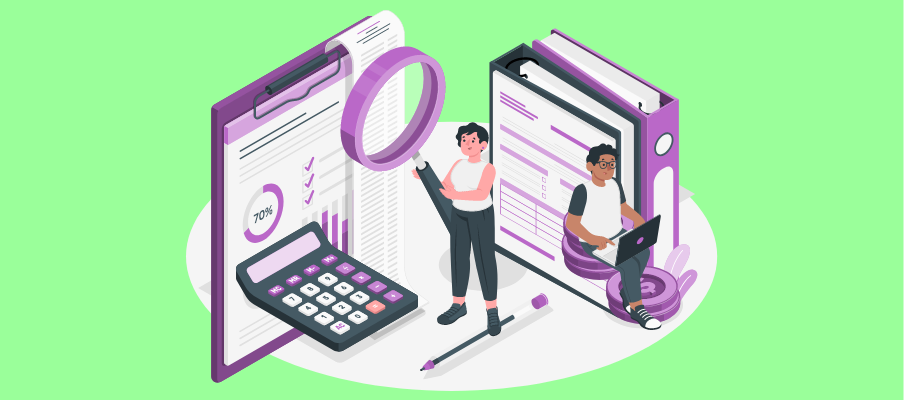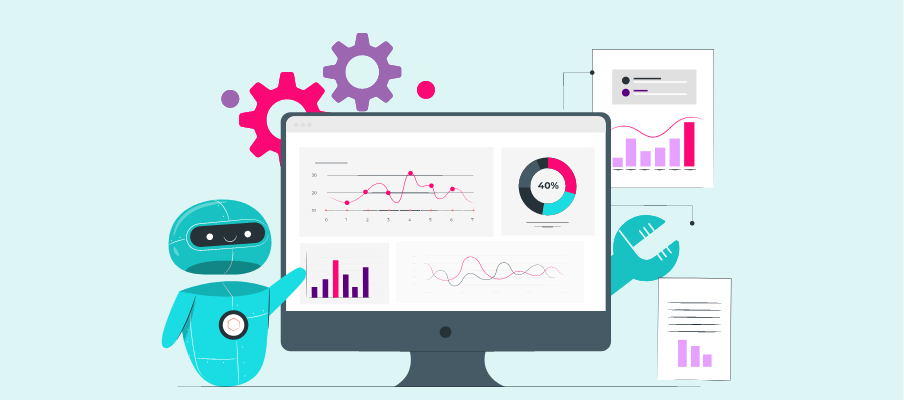AI Integration: Advanced artificial intelligence can detect patterns, analyze data, and even predict future trends.
Automated Bookkeeping vs. Manual Accounting: Which Is Better?

Financial management is at the heart of every successful business, regardless of size. For small business owners, accountants, and freelancers, staying on top of accounting tasks can mean the difference between smooth operations and financial chaos. This raises a crucial question in the digital age: is automated bookkeeping the way forward, or should businesses stick to tried-and-true manual accounting methods?
This blog dives into both approaches, comparing their benefits, downsides, and practical applications to help you decide which aligns best with your financial needs.
What Is Automated Bookkeeping?
Automated bookkeeping is a technology-driven approach to managing a business's finances. With the rise of powerful accounting software, this method leverages tools to handle tasks like data entry, invoice processing, expense tracking, and financial reporting.
Key Features of Automated Bookkeeping
Cloud-Based Access: Securely access and manage data from anywhere in the world.
Real-Time Updates: Transactions and financial records are automatically updated as they occur.
What Is Manual Accounting?
Manual accounting is the traditional approach to managing books, relying heavily on human effort rather than software. This process often involves handwritten ledgers, physical documents, and spreadsheets.
Key Features of Manual Accounting
Hands-On Control: Owners or accountants directly manage data entry and reconciliation.
Human Judgment: Relies on intuition and expertise rather than algorithms.
Traditional Methods: Frequently involves tools like Microsoft Excel or even old-fashioned bookkeeping journals.
Automated Bookkeeping vs. Manual Accounting
When deciding between automated bookkeeping and manual accounting, automated systems often emerge as the more efficient and accurate choice for most businesses. Automated bookkeeping relies on software to handle repetitive tasks like data entry, bank reconciliation, and financial reporting. This significantly reduces human error, saves time, and provides instant access to real-time financial data.
It is particularly well-suited for growing businesses that must manage large volumes of transactions or require scalability. Furthermore, many automated systems integrate seamlessly with other tools, such as payroll software and tax filing platforms, streamlining the overall accounting process.
On the other hand, manual accounting might still be preferred by small businesses or sole proprietors who value a more hands-on approach. It can also be beneficial in cases where financial activities are minimal or highly specific, making manual oversight more practical.
However, manual methods are time-consuming and more prone to errors like miscalculations or misplaced data. With automated solutions becoming increasingly affordable and user-friendly, even businesses traditionally reliant on manual practices are shifting toward automation to stay competitive.
Ultimately, automated bookkeeping is the better option for most modern businesses. Its ability to save time, reduce errors, and provide valuable financial insights far outweighs the limited benefits of manual accounting. By adopting automation, companies can focus on strategic growth instead of getting bogged down by tedious administrative work.
Key Differences Between Automated Bookkeeping and Manual Accounting
Pros and Cons of Automated Bookkeeping
Pros of Automated Bookkeeping
Saves Time – Focus on growing your business instead of dealing with tedious admin work.
Reduces Errors – Eliminates manual mistakes like misplaced decimals or missed entries.
Real-Time Insights – With real-time insights, updated financial data at your fingertips for faster decision-making.
Integration – Works seamlessly with payroll, e-commerce, and customer relationship management (CRM) software.
Scalable – Adapts to your growing business needs.
Cons of Automated Bookkeeping
Costs – Initial setup and subscription fees can be prohibitive for some.
Learning Curve – Non-tech-savvy users may take time to adapt.
Cybersecurity Risks – Storing data online introduces potential hacking risks.
Pros and Cons of Manual Accounting
Pros of Manual Accounting
Complete Control – You’ll always have direct oversight of your records.
Simplicity – Best for those who prefer traditional, straightforward methods.
No Dependence on Technology – Ideal for businesses in areas with unstable internet connectivity.
Cons of Manual Accounting
Time-Consuming – Managing accounts manually involves long, repetitive tasks.
Prone to Errors – Human mistakes can cause significant harm to financial accuracy.
Limited Scalability – Struggles to handle the complexities of growing businesses.
Slow Reporting – Generating detailed financial summaries often takes time.
Factors to Consider When Choosing Between Automated Bookkeeping and Manual Accounting
When deciding between automated bookkeeping and manual accounting, it's essential to evaluate several factors to determine what best suits the needs of your business. Every organization operates differently, and what works for one might not be ideal for another. By carefully considering key aspects like cost, efficiency, and scalability, you can make an informed decision.
Cost – Automated bookkeeping often requires an upfront investment in software and tools, while manual accounting may need fewer immediate expenses but involves higher labor costs over time.
Business Size and Complexity – Small businesses with simpler transactions might manage well with manual accounting, whereas larger businesses with complex operations benefit from automation.
Accuracy – Automated bookkeeping reduces human error by relying on algorithms and consistent systems. Manual accounting, however, depends entirely on human diligence.
Time Availability – Automation can significantly cut down on the time required for routine tasks like data entry, allowing more time for analysis and strategy.
Flexibility – Manual accounting can offer more customized processes, while automated systems excel in standardization and consistency, which are critical for reporting.
Real-World Examples and Case Studies
Automated Bookkeeping Success
Take Sarah's Bakery, a growing chain that switched to QuickBooks. By automating tasks like tracking cash flow, she reduced bookkeeping time by 40% and reinvested the savings into expanding her business.
Manual Accounting Success
On the other hand, James' Plumbing Services, a local operation with under 10 transactions per month, sticks to manual accounting. Why? It fits his operation perfectly without extra software costs, and he values personal control.
Frequently Asked Questions
What are the main differences between bookkeeping and accounting?
Bookkeeping focuses on recording and organizing financial transactions, while accounting involves analyzing, interpreting, and reporting financial data to support decision-making. Accounting often builds on the information provided by bookkeeping to create comprehensive financial insights.
Is automated bookkeeping secure?
Yes, automated bookkeeping is secure when using trusted software with encryption and robust security protocols. It safeguards sensitive financial data and ensures compliance with industry standards.
Can manual accounting work for large businesses?
Manual accounting can work for large businesses, but it is highly inefficient and prone to errors. Automated systems are better suited to handle the complexity and volume of financial data in large organizations.
What is the cost of automated bookkeeping software?
The cost of automated bookkeeping software varies widely depending on the features and scale required, typically ranging from $10 to $100+ per month. Many providers also offer tiered pricing plans to cater to different business needs.
The Final Verdict
Automated bookkeeping and manual accounting both have their strengths, depending on your business needs. Automation is ideal for fast-growing, high-volume businesses, while manual accounting suits smaller operations that value personal control.
Many businesses benefit from a hybrid approach, combining automation for routine tasks with human oversight for complex decisions. Tools like Ziepie books, QuickBooks or Xero can simplify bookkeeping, and consulting a financial expert can help tailor the right strategy for your business.
For a fully automated bookkeeping solution suitable for both small and large businesses, Ziepie Books is an excellent choice. It streamlines your processes, minimizes errors, and saves you valuable time.




